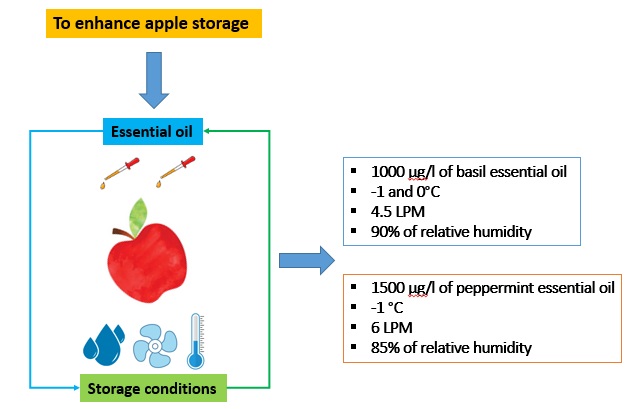Application of essential oils and optimizing storage conditions for control of postharvest diseases in apple

Published 2023-09-01
Keywords
- Essential oil,
- ethylene production,
- postharvest,
- storage condition
How to Cite
Copyright (c) 2023 Ghader Rostami Tobnag

This work is licensed under a Creative Commons Attribution 4.0 International License.
Abstract
Postharvest loss in fruits and vegetables accounts for more than one third of the world production. On the other hand, using chemicals has raised food health concerns, and grown the demand for eco-friendly materials. Given the promising results of essential oil use to control and prevent postharvest decay, we conducted this research. In the present study, a two-step statistical method was used to determine and optimize application of essential oils along with parameters of storage conditions. Significant level of essential oils and storage conditions (temperature, ventilation, and relative humidity) were screened by using PBD method and the best concentration were determined by central composite design of response surface method. The results showed that 1000 and 1500 microgram/l (µg/l) of basil essential oils, and 1500 µg/l of peppermint essential oils reduced the lesion diameter in apple fruits infected with Penicillium expansum. All storage conditions had significant effect on postharvest decay. Based on the CCD of RSM method, the best concentration of essential oils and the optimal level of the storage condition were determined. Furthermore, basil and peppermint treatments reduced rate of the ethylene production during 56 days after treatment. The results of this study revealed and confirmed that basil essential oils as a postharvest treatment under optimized storage conditions can be utilized as a low-cost substrate for controlling postharvest decay in apple.




